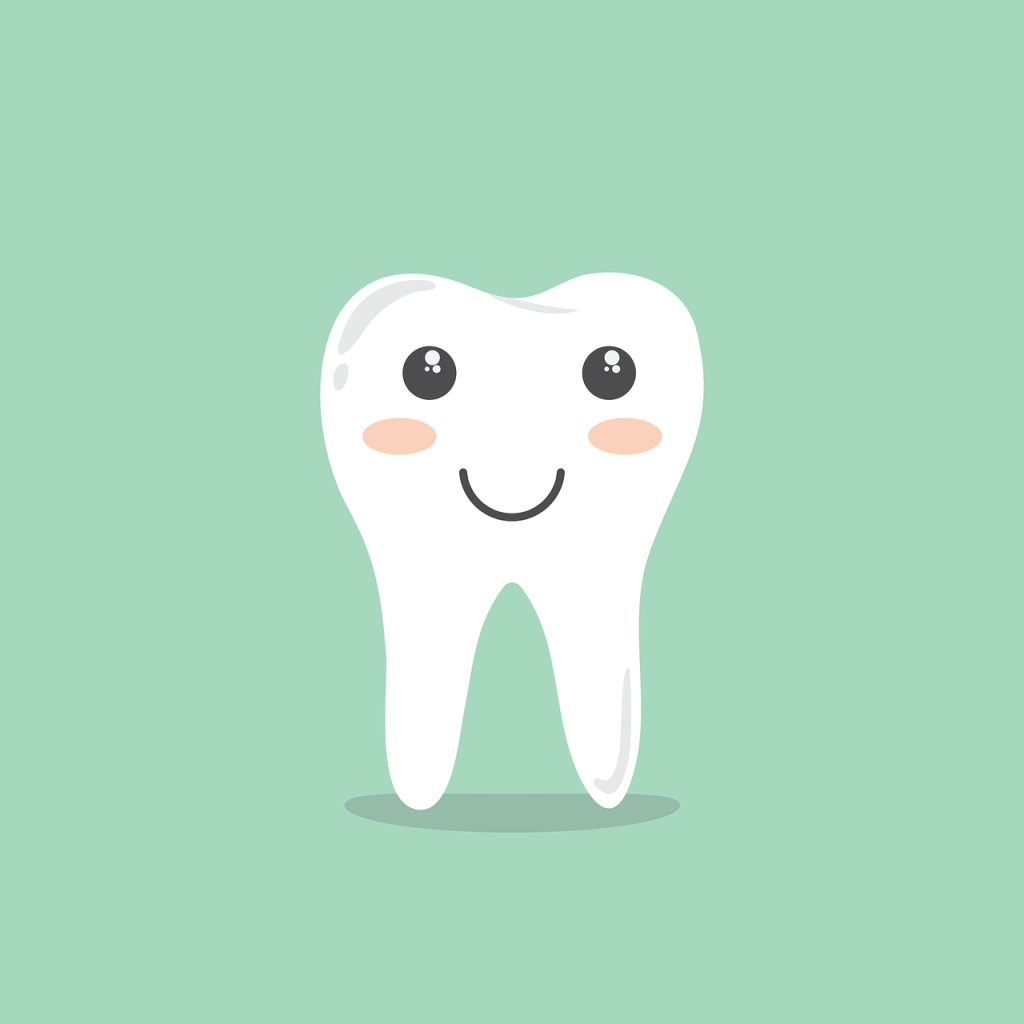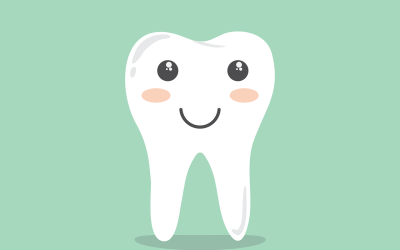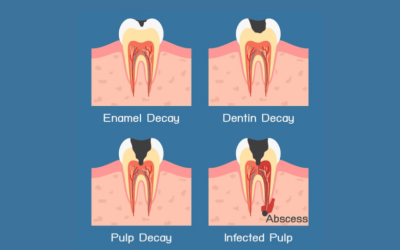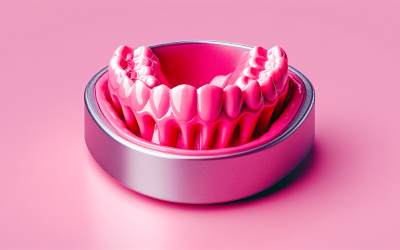So, picture this: you’re enjoying a game of soccer with friends, feeling the exhilaration of the competition, when suddenly, a stray ball smacks you square in the mouth. Ouch. In that split second, your heart sinks as you realize something’s not right – your tooth is knocked out. It’s a situation that no one wants to find themselves in, but hey, accidents happen. While it may seem like an emergency in the moment, fear not, because there are steps you can take to increase the chances of saving your knocked-out tooth.

Causes of a knocked-out tooth
Sports injuries
Sports injuries, especially those involving contact or impact, are a common cause of knocked-out teeth. High-impact sports such as football, hockey, and boxing pose a greater risk of tooth loss due to their intense physical nature. Collisions with other players, lands, or equipment can result in a tooth being forcefully dislodged. It is important to wear a properly fitted mouthguard during sports activities to minimize the risk of dental injuries.
Accidents
Accidents, such as car crashes or falls, can also lead to a knocked-out tooth. The sudden impact or force can cause the tooth to become dislodged from its socket. Accidents can arise from various situations, like slipping on a wet floor, tripping on uneven surfaces, or being involved in a physical altercation. It is essential to be cautious and take necessary precautions to prevent accidents that can result in tooth loss.
Falls
Falls, particularly from heights or on hard surfaces, can have serious consequences for your teeth. Whether it’s falling off a bicycle, tripping on stairs, or slipping on an icy pavement, the impact of the fall can cause a tooth to be knocked out. It is crucial to be mindful of your surroundings and take proper care when engaging in activities that may put you at risk of falls.
Physical altercations
Physical altercations or fights can result in teeth being knocked out. The forceful impact or blows to the face during a fight can cause immediate tooth loss. Engaging in physical altercations not only increases the risk of tooth loss, but also poses potential harm to your overall well-being. It is important to resolve conflicts peacefully and avoid situations that may escalate into physical violence.
Immediate steps after a tooth has been knocked out
Stay calm
The first and most important step after a tooth has been knocked out is to stay calm. Panicking can hinder your ability to think clearly and take the necessary steps for tooth preservation. Take a deep breath, collect yourself, and proceed with the following immediate steps.
Handle the tooth carefully
Pick up the tooth by the crown (the top part visible in the mouth) and avoid touching the root. Handling the tooth with care helps prevent any further damage and maintains the best chances for successful re-implantation.
Rinse the tooth
If the tooth is dirty or covered in debris, gently rinse it with milk or saline solution. It is important to use a mild solution to clean the tooth, as harsh chemicals or tap water can damage the delicate root surface.
Attempt to reinsert the tooth
If possible, try to reinsert the tooth into its socket. Hold the tooth by the crown and place it back into the socket, making sure it is facing the correct way. Apply gentle pressure to hold it in place. If reinsertion is not possible, proceed to the next steps while keeping the tooth moist.
Seek professional dental help
Contact a dentist immediately
After a tooth has been knocked out, it is crucial to contact a dentist as soon as possible. Time is of the essence when it comes to successful re-implantation or other dental treatments. Call your dentist and explain the situation, providing as much detail as possible. They will guide you on the next steps and may ask you to come in for an emergency appointment.
Transport the tooth correctly
When transporting the knocked-out tooth, it is important to keep it moist. You can place the tooth in a container with milk, saliva, or a saline solution, making sure not to let it dry out. Avoid storing the tooth in water or wrapping it in tissue or cloth, as these can damage the delicate root surface. Keep the tooth protected and handle it with care to preserve its viability.
Emergency dental care options
In some cases, a knocked-out tooth may require immediate emergency dental care. Your dentist may advise you to visit an emergency dental clinic or provide guidance on what to do until your scheduled appointment. Depending on the severity of the situation, the dentist may attempt to re-implant the tooth, perform a root canal therapy, or explore other treatment options.
Precautions and home remedies
Avoid touching the root
When handling a knocked-out tooth, it is essential to avoid touching the root. The root contains delicate structures and tissues necessary for successful re-implantation. Touching the root can damage these structures, reducing the chances of a successful outcome. Handle the tooth by the crown and avoid unnecessary contact with the root surface.
Store the tooth properly
If immediate re-implantation is not possible, it is crucial to store the tooth properly. Place the tooth in a container with milk, saliva, or a saline solution to keep it moist. Do not let the tooth dry out, as this can significantly reduce its chances of survival. Avoid storing the tooth in water or wrapping it in tissue or cloth, as these can cause damage.
Use a temporary tooth preservation kit
Temporary tooth preservation kits are available over-the-counter and can be useful in preserving a knocked-out tooth until dental help is obtained. These kits typically contain a solution that helps keep the tooth moist and viable. Follow the instructions on the kit carefully and consult your dentist for further guidance.
Do not clean the tooth with chemicals
While it is important to rinse a knocked-out tooth to remove debris, it is crucial not to clean it with harsh chemicals. Avoid using alcohol, hydrogen peroxide, or other disinfectants, as they can damage the delicate root surface. Stick to rinsing with milk or a mild saline solution to gently clean the tooth.
Manage pain and swelling
If you experience pain or swelling after a tooth has been knocked out, you can use over-the-counter pain relievers and apply a cold compress to the affected area. Pain and swelling are common immediate reactions to dental trauma, and these measures can provide temporary relief until professional dental help is obtained.

Treatment options for a knocked-out tooth
Reimplantation
If a knocked-out tooth is re-implanted within a short period, there is a chance that it can once again become functional. Reimplantation involves carefully placing the tooth back into its socket and stabilizing it with splints or wires. The success of reimplantation varies depending on factors such as the time between tooth loss and reimplantation, the condition of the tooth, and the patient’s overall dental health.
Root canal therapy
In some cases, a knocked-out tooth may require root canal therapy to save the tooth. This procedure involves removing the damaged or infected pulp from the tooth’s root canals, disinfecting the area, and filling it with a sealing material. Root canal therapy can help preserve the tooth’s structure and prevent infection or further damage.
Dental implants
If reimplantation or root canal therapy is not possible or unsuccessful, dental implants may be considered as a long-term treatment option. Dental implants involve surgically placing an artificial tooth root (usually made of titanium) into the jawbone, which then serves as an anchor for a dental crown. Dental implants are a highly durable and natural-looking replacement for a knocked-out tooth.
Dental bridges
Dental bridges are another treatment option for replacing a knocked-out tooth. They consist of an artificial tooth (pontic) attached to two dental crowns, which are placed on the adjacent teeth. The dental crowns serve as anchors to hold the bridge securely in place. Dental bridges can help restore the appearance and functionality of a missing tooth.
Partial dentures
Partial dentures may be recommended if multiple teeth have been knocked out or if the remaining teeth are not strong enough to support dental implants or bridges. Partial dentures are removable appliances that replace the missing teeth and fit around the remaining natural teeth. They can improve aesthetics and function, allowing you to speak and eat more comfortably.
Complications and long-term effects
Tooth sensitivity
After a tooth has been knocked out and reimplanted or replaced with a dental treatment, you may experience increased tooth sensitivity. This sensitivity can be temporary or long-term and may be caused by factors such as exposed dentin, nerve damage, or the adjustment period for the dental restoration. Consult with your dentist if tooth sensitivity persists or worsens over time.
Bone loss
A knocked-out tooth can lead to bone loss in the area where the tooth was lost. When a tooth is missing, the underlying bone loses the stimulation it receives from the tooth root, resulting in gradual bone resorption. Bone loss can affect the stability of neighboring teeth and may require additional treatments such as bone grafting to support future dental implants or bridges.
Gum recession
Gum recession is another potential complication of a knocked-out tooth. When a tooth is lost, the gums around the area may recede, exposing the tooth’s root or leaving a gap between the gum line and the replacement tooth. Gum recession can lead to increased tooth sensitivity, compromised aesthetics, and a higher risk of dental problems such as cavities or gum disease.
Impact on appearance and speech
A knocked-out tooth can significantly impact your appearance and speech. Gaps or missing teeth can affect your smile, facial aesthetics, and self-confidence. Depending on the location of the missing tooth, it may also affect your ability to pronounce certain sounds or words correctly. Dental treatments such as dental implants or bridges can help restore your smile and improve speech function.

Prevention of knocked-out teeth
Wearing mouthguards during sports activities
One of the most effective ways to prevent knocked-out teeth during sports activities is to wear a properly fitted mouthguard. Mouthguards provide cushioning and protect the teeth from impact or injury. Custom-fitted mouthguards, made by a dentist, provide the best fit, comfort, and protection. Investing in a quality mouthguard can go a long way in preventing dental injuries.
Maintaining good oral hygiene
Maintaining good oral hygiene practices is essential for overall dental health, including preventing knocked-out teeth. Regular brushing, flossing, and using mouthwash help remove plaque, prevent gum disease, and reduce the risk of tooth decay. Good oral hygiene strengthens the teeth and gums, making them more resistant to trauma and other dental problems.
Regular dental check-ups
Regular dental check-ups are crucial for early detection and treatment of dental issues that may contribute to tooth loss. Dentists can identify and address potential problems such as gum disease, tooth decay, or misaligned teeth before they worsen. Routine dental visits also allow for professional cleanings and examinations to ensure optimal oral health.
Avoiding risky behavior
To minimize the risk of dental injuries, it is important to avoid engaging in risky behavior. This includes avoiding physical altercations or fights, practicing caution when participating in high-impact sports, and being mindful of your surroundings to prevent accidents or falls. Taking preventative measures and making safe choices can greatly reduce the chances of knocked-out teeth.
First aid for a broken or fractured tooth
Rinse the mouth gently
If you have a broken or fractured tooth, rinse your mouth gently with warm water to remove any blood or debris. Be careful not to swallow any loose fragments of the tooth.
Control bleeding
If there is bleeding from the broken or fractured tooth, apply gentle pressure to the area with a clean piece of gauze or a damp tea bag. This can help stop the bleeding. If bleeding persists or is severe, seek immediate dental care.
Apply a cold compress
To reduce swelling and relieve pain, apply a cold compress or ice pack to the affected area. This can also help minimize any bruising.
Save any broken pieces
If parts of the broken or fractured tooth have come loose, try to save them. Place the broken fragments in a container with milk, saline solution, or saliva to keep them moist. Your dentist may be able to use them for potential restoration.
Seek dental care
After experiencing a broken or fractured tooth, it is essential to seek dental care promptly. Contact your dentist and explain the situation, providing as much detail as possible. They will guide you on the next steps and may recommend an emergency appointment to evaluate and treat the tooth.
Temporary tooth replacements
Dental adhesives
In some cases, you may need a temporary tooth replacement while awaiting a permanent dental solution. Dental adhesives can be used to temporarily attach a denture, bridge, or crown to fill the gap left by a knocked-out or broken tooth. These adhesives provide a short-term solution to restore both aesthetics and function.
Dental wax
Dental wax can be used to provide temporary protection and insulation for a broken or fractured tooth. It can help smooth rough edges or sharp surfaces, preventing further damage to the soft tissues of the mouth and providing some relief from discomfort.
Soft diet
While waiting for a permanent solution for a knocked-out or broken tooth, it is important to maintain a soft diet. Avoid hard or sticky foods that may cause further damage or dislodge temporary dental restorations. Opt for softer foods like soups, mashed potatoes, yogurt, and smoothies until your dental treatment is complete.
Avoiding certain foods
In addition to maintaining a soft diet, it is advisable to avoid chewing on hard or crunchy foods that may present a higher risk of damaging temporary tooth replacements. This includes avoiding popcorn, hard candies, ice cubes, and tough meats. Be cautious and choose foods that are gentle on your teeth to prevent further complications.
Coping emotionally with a knocked-out tooth
Feelings of embarrassment and self-consciousness
Experiencing a knocked-out tooth can cause feelings of embarrassment and self-consciousness. The visible gap in your smile may negatively impact your self-esteem. It is important to remember that tooth loss is a common problem that many people face, and there are effective dental treatments available to restore your smile.
Seeking support
If you are struggling emotionally with a knocked-out tooth, it can be helpful to seek support from friends, family, or a support group. Talking about your concerns and feelings with others who have gone through similar experiences can provide reassurance and understanding.
Understanding replacement options
Educating yourself about the different replacement options for a knocked-out tooth can help alleviate anxiety and uncertainty. Consult with your dentist to learn about the various dental treatments available and their pros and cons. Understanding the process and potential outcomes can empower you to make informed decisions about your dental care.
Acceptance and self-confidence
Ultimately, accepting the reality of a knocked-out tooth and focusing on the available solutions can lead to greater self-confidence. Dental treatments have come a long way, and advancements in technology and techniques can provide natural-looking and functional replacements for missing teeth. Embrace your new smile and remember that confidence is a reflection of your inner self-worth, not just your appearance.
In conclusion, a knocked-out tooth can occur due to various causes, such as sports injuries, accidents, falls, and physical altercations. It is essential to stay calm and handle the tooth carefully, rinsing it if necessary, and attempting to reinsert it. Seeking professional dental help immediately is crucial, as timely intervention can increase the chances of saving the tooth. Precautions and home remedies should be followed to preserve the tooth’s viability, and treatment options like reimplantation, root canal therapy, dental implants, dental bridges, or partial dentures can be considered. Complications such as tooth sensitivity, bone loss, gum recession, and their impact on appearance and speech may occur, highlighting the importance of prevention and regular dental check-ups. First aid for a broken or fractured tooth includes gentle rinsing, controlling bleeding, applying a cold compress, saving broken fragments, and seeking dental care promptly. Temporary tooth replacements, such as dental adhesives, dental wax, and a soft diet, can be used until a permanent solution is obtained. Coping emotionally with a knocked-out tooth involves acknowledging feelings, seeking support, understanding replacement options, and fostering acceptance and self-confidence. By taking proper precautions and seeking timely dental care, you can minimize the risk of knocked-out teeth and maintain a healthy and confident smile.










